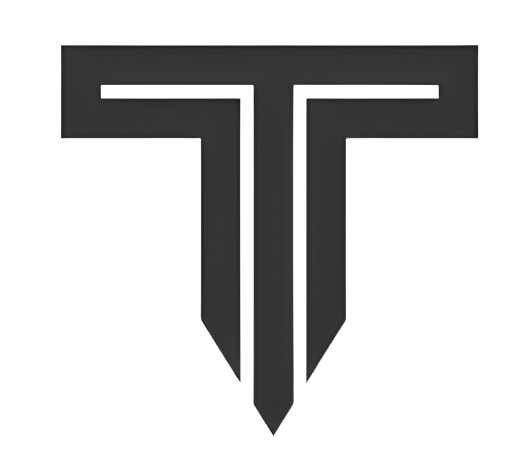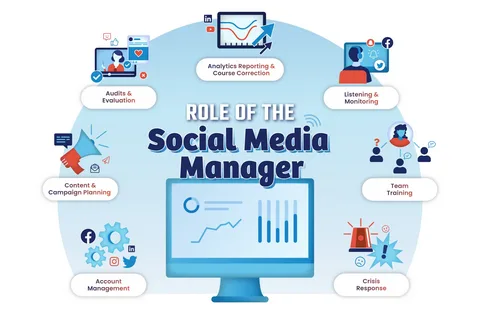In today’s digital-first world, social media isn’t just a place to post photos—it’s a vital channel for branding, customer engagement, and business growth. Whether you're a small startup or an established enterprise, the ability to manage social media accounts effectively can determine how well your brand connects with your audience and competes in the market.
Social media management involves much more than publishing content. It requires planning, creativity, consistency, audience engagement, data analysis, and platform expertise. Businesses that succeed online are often the ones that recognize the value of a structured and strategic approach to managing their social presence.
Why Social Media Account Management Matters
Millions of users scroll through platforms like Instagram, Facebook, LinkedIn, Twitter (X), TikTok, and YouTube every day. These platforms offer a powerful opportunity to build brand awareness, drive traffic to your website, and generate leads or sales. However, without a clear strategy, regular posting schedule, and audience insights, even the best content may go unnoticed.
Professional social media account management ensures that your channels are not only active, but also aligned with your brand voice, business goals, and audience interests. It helps you maintain consistency, build trust, and stay competitive in an ever-evolving digital space.
What’s Involved in Managing Social Media Accounts
Managing social media accounts involves several interconnected tasks that work together to strengthen your brand and grow your online community. These include:
Content Planning: Developing a content calendar that maps out posts for the week or month ahead, ensuring variety, consistency, and alignment with marketing goals.
Post Creation: Crafting visuals, captions, hashtags, and calls-to-action that reflect your brand voice and resonate with your audience.
Scheduling: Using tools like Meta Business Suite, Buffer, or Hootsuite to schedule posts across multiple platforms for optimal times and maximum reach.
Audience Engagement: Responding to comments, messages, and mentions to build relationships and show that your brand is active and attentive.
Analytics and Reporting: Tracking performance metrics such as reach, engagement, follower growth, and click-through rates to understand what’s working and refine your strategy.
Community Building: Identifying and engaging with relevant influencers, industry pages, or groups to extend your brand’s presence and credibility.
Crisis Management: Handling negative feedback or issues professionally to maintain a positive brand image.
Who Needs Social Media Management?
Every business can benefit from effective Digital Marketing Agency Dubai. Whether you’re in e-commerce, hospitality, real estate, healthcare, education, or professional services, your audience is already active on social platforms.
Startups often need to create brand awareness and generate buzz, while established companies may focus on maintaining relationships, showcasing new products, and driving conversions. Even individual entrepreneurs, coaches, and consultants can use well-managed accounts to build personal brands and attract clients.
Benefits of Professional Social Media Management
When you outsource or hire professionals to manage your accounts, you gain several advantages:
-
Consistency: Regular posting maintains visibility and keeps your audience engaged.
-
Brand Cohesion: All content aligns with your brand’s tone, visuals, and values.
-
Time Efficiency: Free up your time to focus on other business priorities while experts handle your online presence.
-
Better Results: Experience stronger engagement, improved follower growth, and better conversion potential from professionally crafted strategies.
-
Access to Expertise: Social media professionals understand each platform’s algorithms, features, and trends—and how to use them effectively.
Multi-Platform Strategy
Each social media platform has its own audience, purpose, and content style. Managing accounts effectively means knowing how to tailor your content and strategy for each:
-
Instagram: Great for visuals, stories, and reels that capture attention quickly.
-
Facebook: Ideal for longer-form content, event promotion, and community engagement.
-
LinkedIn: Best for B2B content, company updates, professional insights, and networking.
-
Twitter (X): Useful for quick updates, real-time interaction, and trending topics.
-
TikTok: Perfect for creative short-form videos and viral campaigns.
-
YouTube: Essential for longer video content, tutorials, interviews, and product demos.
By managing all platforms in a unified way, your brand maintains a consistent identity while reaching different segments of your audience effectively.
Choosing the Right Management Partner
If you decide to outsource, it’s important to work with a reliable partner who understands your goals. Look for a team that offers:
-
Experience with your industry or target audience
-
Custom strategies (not one-size-fits-all solutions)
-
Transparent reporting and communication
-
Proven examples of past work and success metrics
The right team will act as an extension of your brand, not just as a service provider.
Final Thoughts
To succeed in today’s competitive digital environment, businesses must learn to manage social media accounts with purpose and professionalism. It's not just about being active—it’s about being strategic, creative, and consistent. With the right approach, social media becomes a powerful tool to build your brand, engage your audience, and drive measurable business growth.
Whether you're managing one platform or several, doing it right can transform your online presence and help you stand out in a crowded digital world.



